
In 2024, Still Using Pattern Locks with Xiaomi Redmi Note 13 5G? Tips, Tricks and Helpful Advice

Still Using Pattern Locks with Xiaomi Redmi Note 13 5G? Tips, Tricks and Helpful Advice
They have been along for a long, long time now – pattern locks – the easiest of all smartphone locks. You just swipe your finger across to create an easy pattern lock of your choosing and that’s it, it becomes your new screen lock. No more remembering tedious digits! So, why have these easy pattern locks become outdated, and why do people still continue to use them? Let’s take a dive and find out all about pattern locks.
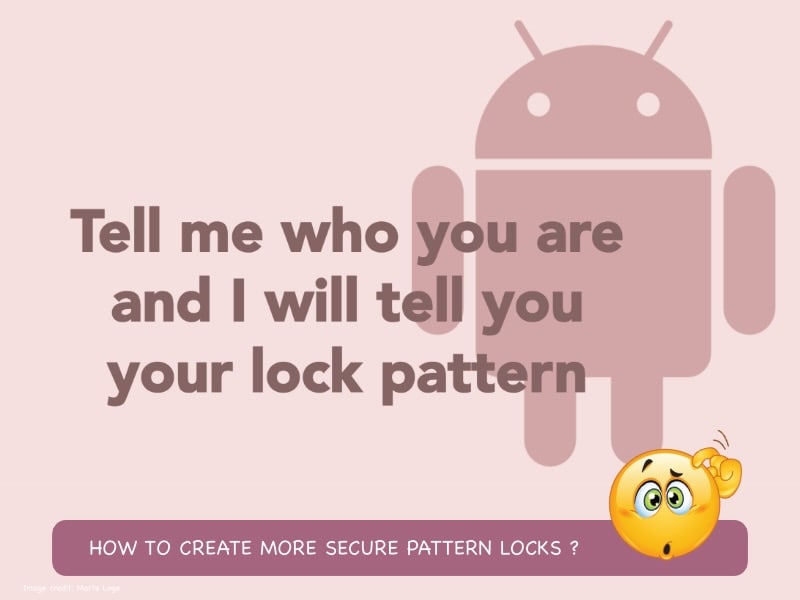
Part I: Things To Know About Pattern Locks
The first cellphone locks were 4-digit number locks. Then came 6-digit codes, and even alphanumeric ones. Pattern locks were all the rage a while ago. Though pattern locks continue to be used, they are not considered safe to use any longer. What is all that about? Here’s what you need to know about pattern locks, whether you are a seasoned pattern lock user or not.
I.I: What Are Pattern Locks?
Believe it or not, technology has advanced at such a rapid pace in the last two decades that you’d be forgiven if you don’t know what a pattern lock is, especially if you have only ever used iPhones, or Android phones in just the last few years.
Pattern locks are patterns you create on your smartphone and designate as a smartphone lock/ screen lock. There is a 9-point keypad of sorts, and you start swiping your finger from any point to any point for any which way you feel like. Android 13 allows a minimum of 4 points registered. They are easy to create, and easy to use, hence called easy pattern locks.
Pattern locks have only ever been offered on Android devices and were commonplace a few years ago until they were deemed not secure enough for use by modern standards because they were easy to figure out by malicious actors.
I.II: Popularity and Usage
Pattern lock is a feature unique to Android and has been so since the start. Naturally, it is one of the preferred ways users have come to unlock their Android devices over the years. Even though modern Android smartphones come with fingerprint recognition and face recognition technologies, there exists a large subset of users still addicted to and acclimatized with the pattern lock feature, opting over fingerprint and face recognition.
There has been, however, research conducted into the safety and security offered by pattern lock in Android.
I.III: Advantages and Drawbacks
Modern smartphones very nearly contain the entirety of our lives; photo memories, video memories, important documents both financial and personal in nature, banking apps, ID and ATM/ credit cards in the “wallet” apps, and whatnot. A smartphone falling into the wrong hands could very nearly be used to devastate the rightful owner, both financially and otherwise. And this is not a claim out of thin air; spyware/ malware/ phishing attacks are on the rise around the world. Locking the smartphone, once considered optional and an unnecessary hassle, is now an absolute must.
Advantages of Pattern Locks
There is no denying that using an easy pattern lock to lock their smartphone seems enough for most users. Swiping your finger across your smartphone to unlock it feels not only cool and futuristic but safer and more secure than remembering and punching in digits. And, for the most part, it is true, given that 4-digit PINs can only have 10,000 unique combinations!
Disadvantages of Pattern Locks
While very easy to use, security researchers and experts have come to agree that the feature is not in the least safe to use, and that is because of how people use the pattern lock feature (discussed in detail below in part II). Some go so far as to say that most pattern locks can be breached in just 5 attempts or less. Imagine that!
What is more, research has found that humans have an uncanny ability to correctly guess a pattern lock simply by viewing the unlocking! The test comprised showing the test subjects videos of users unlocking their phones from different angles and varying distances, and it was found that around 64% of test subjects were able to correctly guess a 6-point pattern lock in one viewing only, and 80% could correctly guess the pattern after just two viewings. By contrast, only 11% were able to correctly deduce a 6-digit PIN after one viewing, and only 27% after viewing twice. This goes to show just how insecure pattern locks are!
Part II: How People Use Pattern Locks
We might wonder how anyone would be able to guess the correct pattern of our device, but believe it or not, it is possible, eerily easily at that! We are all the same humans, after all! You know how people usually set PINs that could be significant dates in their lives? How they get car registration numbers that mean something to them? The same ‘logic’ applies to their setting pattern locks.
At DEFCON 23, Marte Loge, an M.Sc. Computer Science student, presented something that stunned people around the world. She said, “Tell me who you are, and I will tell you your lock pattern.” What followed was an expert presentation outlining and detailing user behaviors around pattern locks.
These are some commonly created pattern locks by people:
- - shapes of alphabets,
- - shapes of numerals,
- - any other easy-to-make, simple shape.
Marte Loge presented the image below, showing how people naturally gravitate towards creating simple shape patterns, in her research.
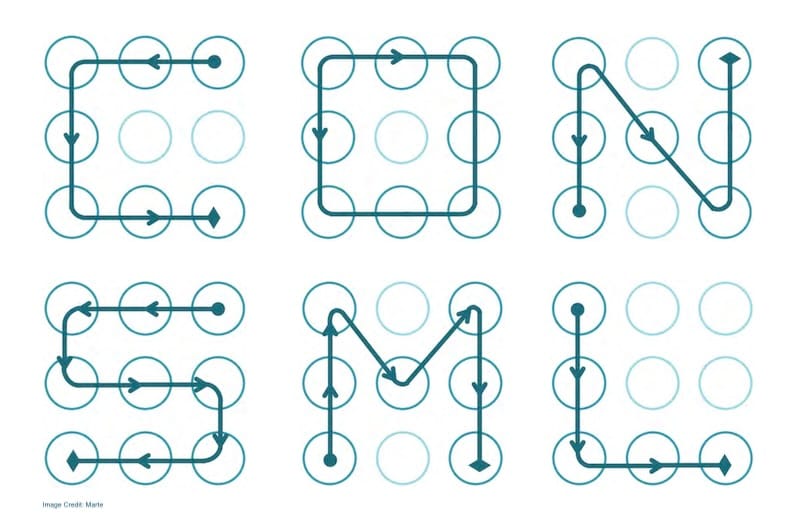
To further help you see how easy it might be for anyone to guess your pattern, Marte Loge also presented some statistics.
- - 77% of people started their patterns in one of the 4 corners.
- - 44% of Loge’s subjects started their pattern with the first dot, the top-left one. The next number was 15% for the top-right and 14% for the bottom-left.
- - These percentages did not vary much depending on left-handedness or right-handedness.
- - On average, irrespective of gender, people set 5-point patterns, with 4-point patterns being the most common. This means that the number of combinations on average was 7152 for 5-point patterns and a bogglingly low 1624 for 4-point patterns.
The above data makes it amply clear how using an easy pattern lock is actually worse than using a 4-digit PIN, simply because how people are usually using the pattern lock feature.
Part III: Tips For Using More Secure Pattern Locks
Now, we know how hard it is to break habits cemented over years of use, so in case you must at all costs use a pattern lock only, the least you can do is try and change your easy pattern lock to a better, more secure hard pattern lock.
III.I: How to Create More Secure Patterns
Here are some tips to help you create a better, more secure pattern lock for your smartphone.
- - Avoid using any of the corners to start the pattern.
- - Never use your first initial as a pattern.
- - Never use a digit shape as a pattern.
- - You can pass through the same pattern lines multiple times over. This makes it more difficult for someone to guess your pattern correctly.
- - Use all 9 points on the grid while setting the pattern lock! That simple act takes the possible pattern combinations to over 140,000, significantly more than 10,000 for 4-digit PINs, and vastly superior to paltry 1624 for a 4-point easy pattern lock!
III.II: Forgot Your Pattern? Unlock Your Xiaomi Redmi Note 13 5G Without Pattern Lock With Dr.Fone
Supercharged with the information above, you went ahead and changed your easy pattern lock to a hard-to-guess pattern lock. Only problem is, your brain is habituated to that old pattern, and you’ve suddenly forgotten what the new pattern was! Well, worry not; Wondershare Dr.Fone - Screen Unlock (Android) will help you unlock your phone without pattern lock !

The Best Tool to Unlock Your Xiaomi Redmi Note 13 5G without Pattern Locks!
- Remove all Android screen locks (PIN/pattern/fingerprints/face ID) in minutes.
- Bypass the FRP lock of Samsung without a PIN or Google account.
- Everyone can handle the lock screen without any tech knowledge.
- Provide specific removal solutions to promise good success rate.
4,008,669 people have downloaded it
Download the newest version of Dr.Fone from the Wondershare website and launch the app.

Step 1: Go to Toolbox > Screen Unlock and click Android.
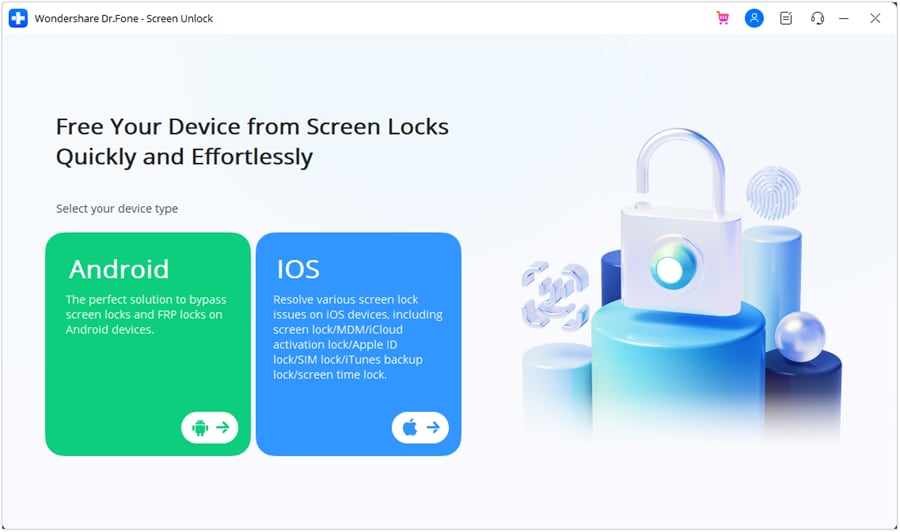
Step 2: Click Unlock Android Screen.
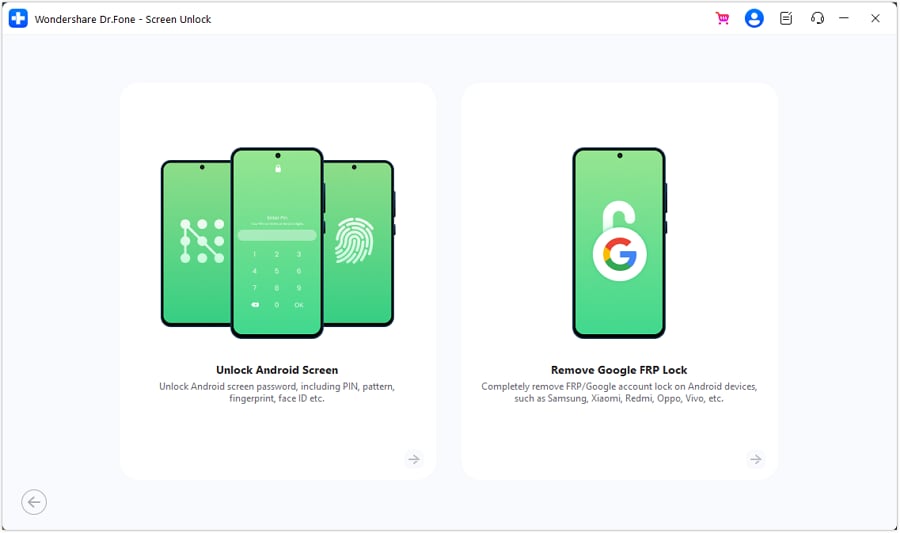
Step 3: You will see a list of supported manufacturers on the next screen. Select yours.
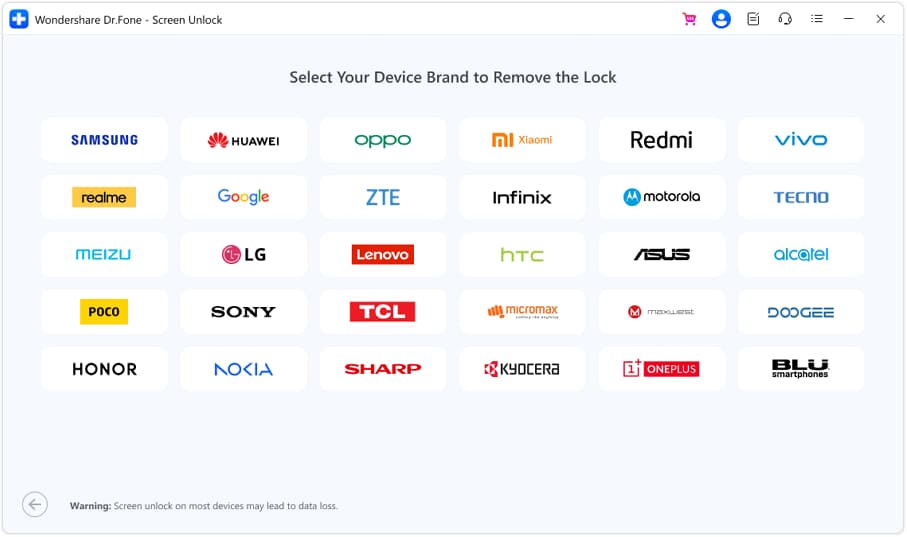
Step 4: Now, follow the onscreen guide to prepare your device for screen unlocking.
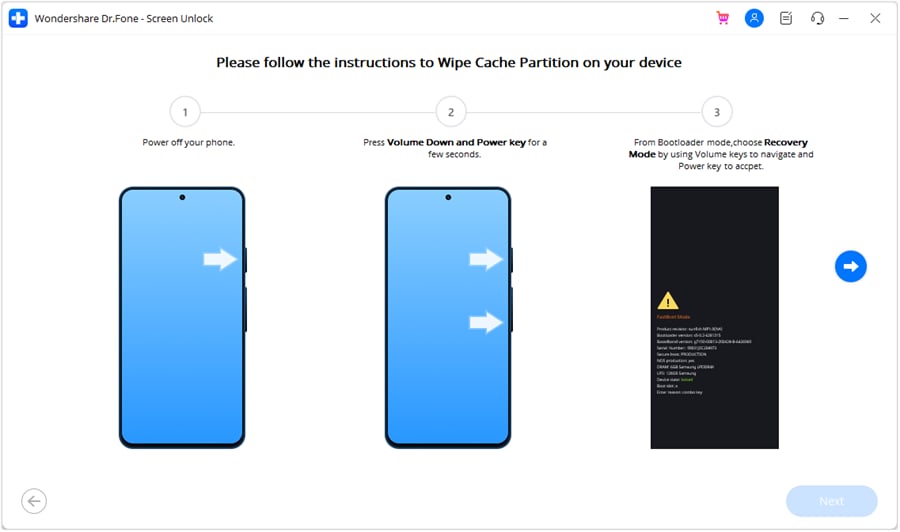
After completing the process, when the Next button becomes available, click it.
Your device will be successfully unlocked.
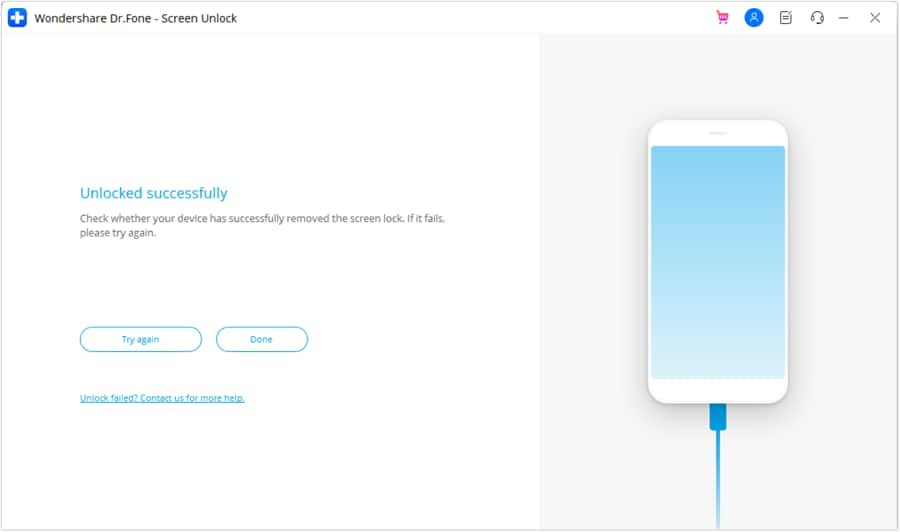
Note that this method wipes all data on the Xiaomi Redmi Note 13 5G device. There is no way around it. You may be able to unlock select older Samsung devices without data loss. Check this list for those devices.
## Closing WordsPattern locks are outdated and not safe to use an easy pattern lock – there are no two ways about it. As such, our recommendation is to start using a 6-digit PIN along with biometric or face recognition. However, we do understand that sometimes, you simply cannot use biometrics or face recognition. For those instances, we recommend that you use this guide and create a more secure pattern lock for your device. In case you forgot your pattern, there is always Wondershare Dr.Fone – Screen Unlock (Android) to save the day.
How To Track IMEI Number Of Xiaomi Redmi Note 13 5G Through Google Earth?
When losing your phone, having a reliable tool at your fingertips can make all the difference. That tool is IMEI tracking, your secret weapon for locating your lost or stolen device. IMEI is a unique number that every mobile device possesses. It’s like a fingerprint for your phone.
Now, the question is, is it possible to track an IMEI number through Google Earth? This question has sparked much debate on the internet, so this article aims to find it out. Keep reading and learn the secrets of Google Earth IMEI trackers.
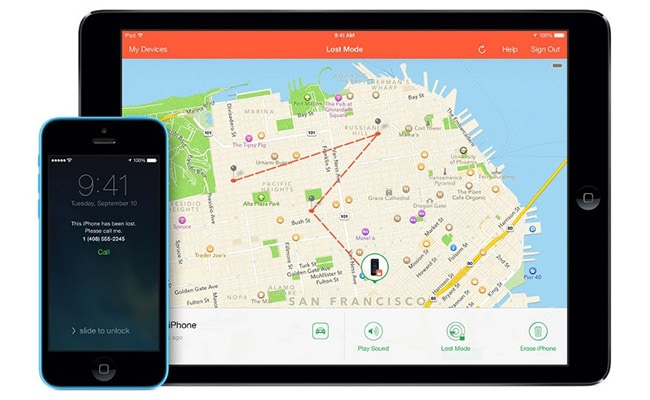
Part 1: How To Track Your Xiaomi Redmi Note 13 5G on Google Earth
This Google Maps IMEI number tracking issue has caused quite a buzz and controversy on the internet. It has raised many concerns regarding the safety and privacy of every smartphone user. To tell you the truth, Google Earth lacks IMEI location data and does not provide such capabilities. Thus, there is no truth in tracking IMEI numbers through Google Earth.
However, if you have access to a cell phone’s GPS coordinates or the location of a cell tower to which it is linked, you can use Google Earth to follow its location.
How To Locate a Smartphone Using Google Earth
Many current smartphones include GPS receivers that allow them to pinpoint their exact location. If you know the phone’s GPS coordinates, you can plug them into Google Earth to see where it is on the map.
- Step 1: This process won’t be possible if your location services are not enabled on your phone. To do this, navigate to Settings, then Location on Android, and Settings > Privacy > Location Services on iOS.
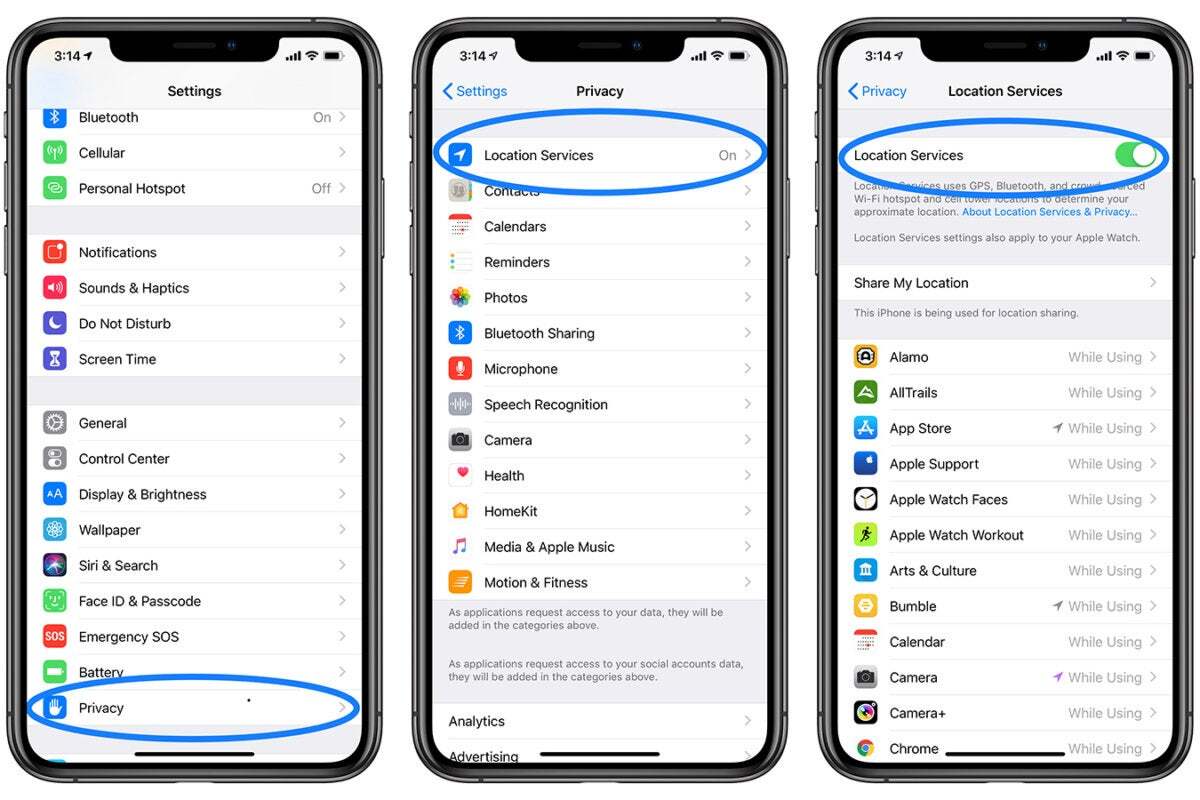
- Step 2: Google Earth can be downloaded and installed on your computer or mobile device. It works with Windows, macOS, Android, and iOS. Download it from your device’s Google Earth website or the app store.
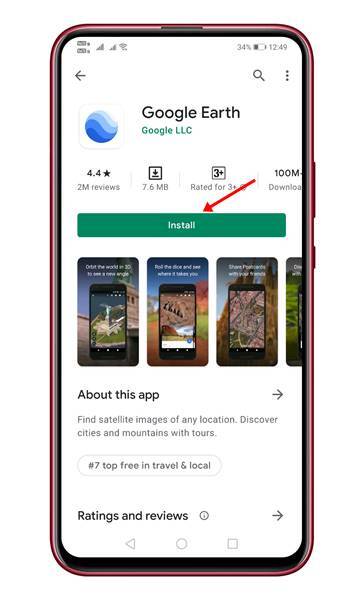
- Step 3: Sign in to Google Earth using the Google Account linked to the phone you want to track. This step is required to acquire location data and monitor IMEI numbers using Google Earth.
- Step 4: Launch Google Earth on your computer or mobile device, then select Your timeline from the Google Maps menu. The operation will take you to the Google Maps Timeline page.
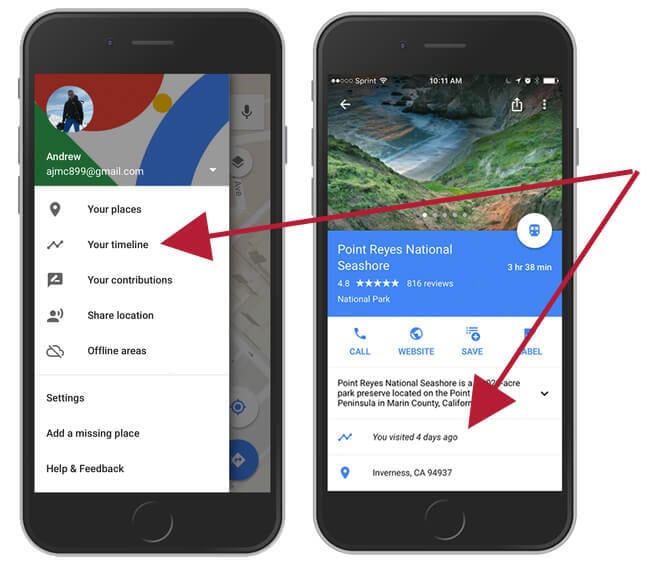
- Step 5: Select the day you wish to see the phone’s location history. Choose the Xiaomi Redmi Note 13 5G device you want to track from the dropdown menu if you have numerous devices linked to the same account. The timeline displays the selected device’s location history for the set date. Examine the locations visited, the routes taken, and the time spent at each spot. For further information, select a certain location or time.
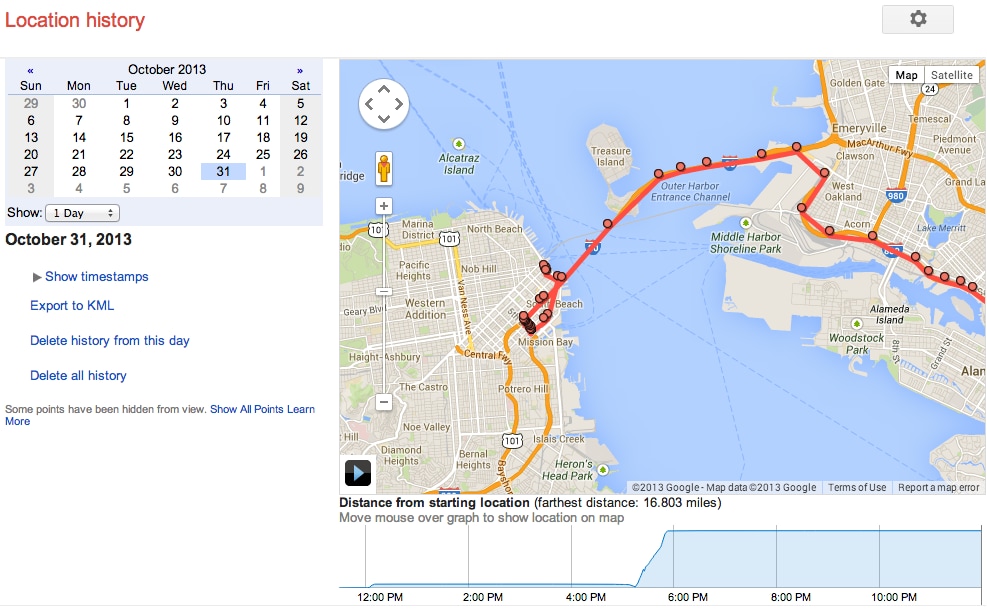
Note: Google Earth does not support real-time location tracking by default. You can use the Find My Device function on Android or Find My on iOS instead if you want to track your phone’s real-time location.
Part 2: Google Earth Alternatives: Track Phone Using IMEI Number
Now that you know the truth behind tracking an IMEI number through Google Earth, let’s talk about other ways to track your phone using your IMEI number. This section will discuss some of your other options when it comes to IMEI number location tracking.
Method 1: Using a Third-Party App
If you have the IMEI number of the stolen device, you can track the phone using IMEI for free utilizing various tools available online.
- Step 1: In the app store, search for “IMEI tracker” and download the IMEI tracking app you wish to install on your phone.
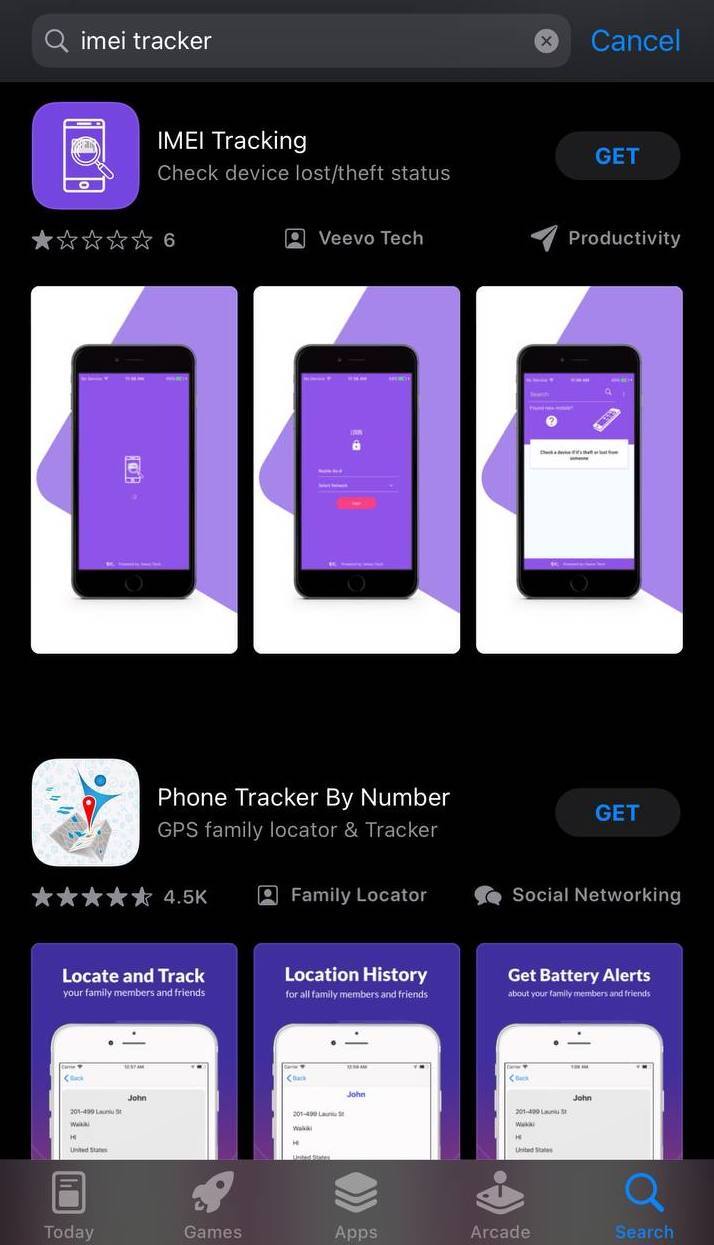
- Step 2: Open the app and follow the in-app guide on how to use it.
Note: Most of the apps require authorization access to your phone. Some also provide a feature where you may send an SMS or a command to get the lost phone’s location.
Method 2: Online IMEI Tracking
In certain situations, an online platform is preferable to a mobile app. For your convenience, a free online platform for tracking a phone using its IMEI number is featured below:
IMEI TRACKER
The online IMEI TRACKER is simple to use. After searching an IMEI tracker in Google and opening its website, please enter a valid IMEI code in its search bar and specify the country where your cell phone was first registered. After that, you have to wait for a few moments, and then you may view the phone’s location status and determine whether it is lost or stolen.
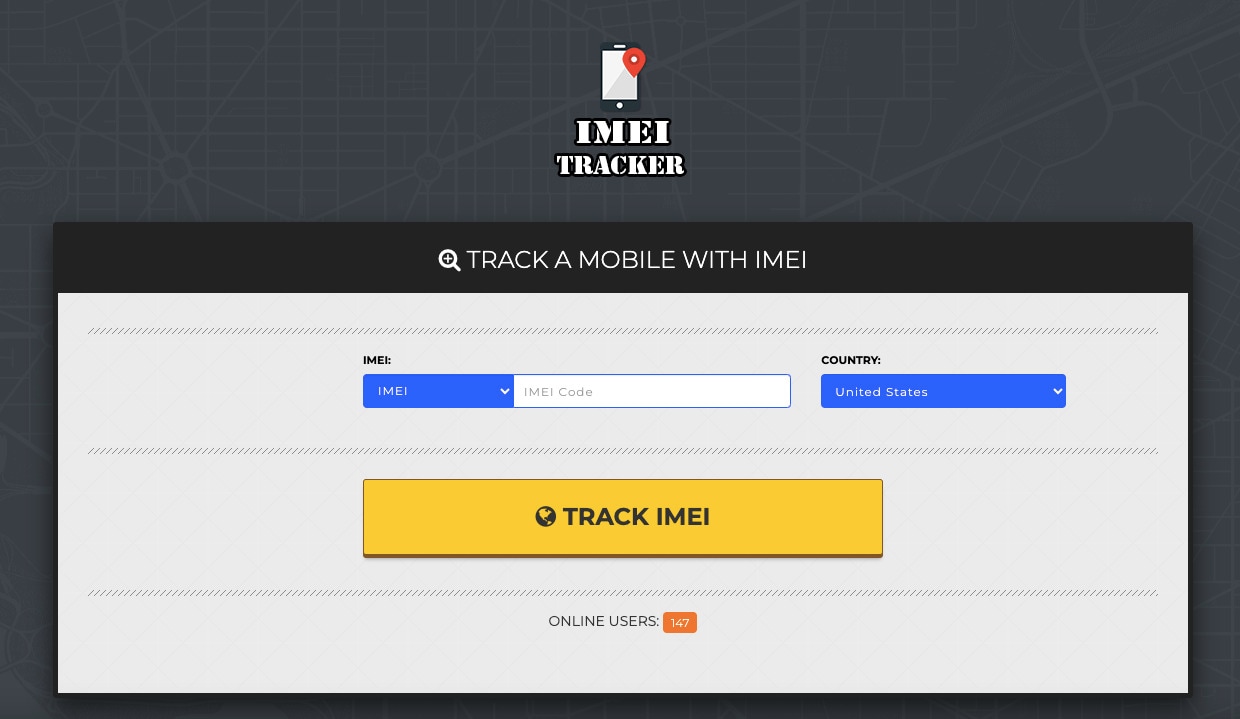
Pros and Cons of IMEI Trackers: Apps and Online Platforms
Now that you know there are still methods to track a phone using an IMEI number, it’s also important to weigh their pros and cons. See the list presented below:
Pros
Check out the advantages of using IMEI trackers below:
- **Lost or Stolen Device Recovery.**The primary benefit of an IMEI tracker is its ability to help locate a lost or stolen mobile device. That can be crucial for recovering your valuable device.
- **No Need for Special Apps.**Unlike many other tracking methods, IMEI tracking doesn’t require any special apps or software to be installed on the Xiaomi Redmi Note 13 5G device you want to track. It relies on the unique IMEI number of the Xiaomi Redmi Note 13 5G device.
- IMEI Tracker is compatible with many mobile devices, including smartphones and feature phones. It’s not limited to a specific operating system or brand.
Cons
Below are the drawbacks of using IMEI trackers:
- **Privacy Concerns.**IMEI tracking can raise privacy concerns, as it involves tracking the location of a mobile device. It’s essential to use this technology responsibly and only for legitimate purposes.
- **Internet and Network Dependency.**IMEI tracking depends on the Xiaomi Redmi Note 13 5G device being connected to the internet or a mobile network. If the Xiaomi Redmi Note 13 5G device is turned off, in airplane mode, or disconnected, tracking may be impossible.
- **Inaccuracies in Remote Areas.**IMEI tracking can be less accurate or even unavailable in remote or rural areas with poor network coverage.
In summary, an IMEI tracker can be a valuable tool for locating lost or stolen mobile devices with its location accuracy and compatibility with various devices. However, it comes with limitations related to privacy and network dependency.
Bonus: An Effective Method for Other iPhone Issues Like Locked Screens
In the previous sections, this article delved into IMEI tracking, which helps you accurately locate your lost or stolen phone. However, imagine this scenario: you’ve found your long-lost iPhone, but there’s a problem. You can’t remember the password, PIN, or pattern to unlock it. So this time, let’s go over one of the most common issues smartphone owners encounter: being locked out of their devices.
Introducing Wondershare Dr.Fone – Screen Unlock (iOS): Your iPhone Savior
There are numerous scenarios where one may forget the passcode on their iOS device. While many people dismiss their phones as useless, there are ways to unlock iPhones correctly. And that’s where Dr.Fone - Screen Unlock (iOS) comes to the rescue. It’s like the locksmith for your phone’s digital lock.
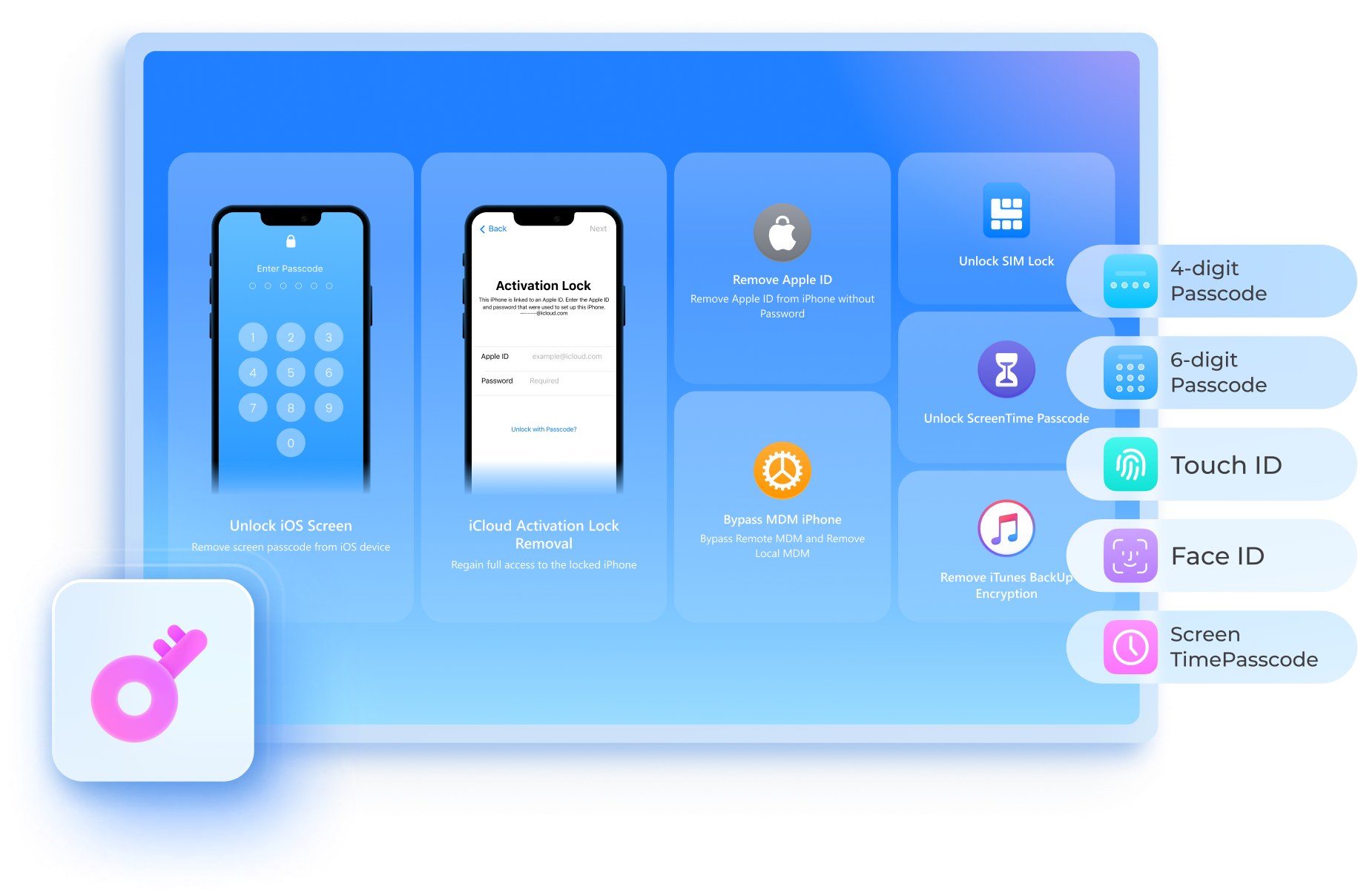
Why Dr.Fone - Screen Unlock Is Your Go-To Solution
Let’s discuss why Dr.Fone - Screen Unlock is a game-changer in unlocking phone, especially when using your IMEI number.
- **User-Friendly Interface.**Fone - Screen Unlock boasts an interface designed with you in mind. You don’t need to be a tech guru to use it. The steps are straightforward, making the whole process hassle-free.
- **Wide Compatibility.**One of the best things about Dr.Fone - Screen Unlock is its compatibility with various mobile devices. It doesn’t matter if you’re using an Android or iOS device; this tool has you covered. It’s like having a universal key to open many locks.
- **Safe and Secure.**Security is a top priority when it comes to your phone. Dr.Fone - Screen Unlock ensures that your data remains safe during unlocking. Your personal information won’t be compromised.
Step-by-Step Guide
Now, let’s dive into how to use Dr.Fone - Screen Unlock to unlock your phone easily :
- Step 1: After downloading and installing Wondershare Dr.Fone on your PC, click Toolbox, click Screen Unlock, then choose iOS. In the window that appears, click the Unlock iOS Screen button.
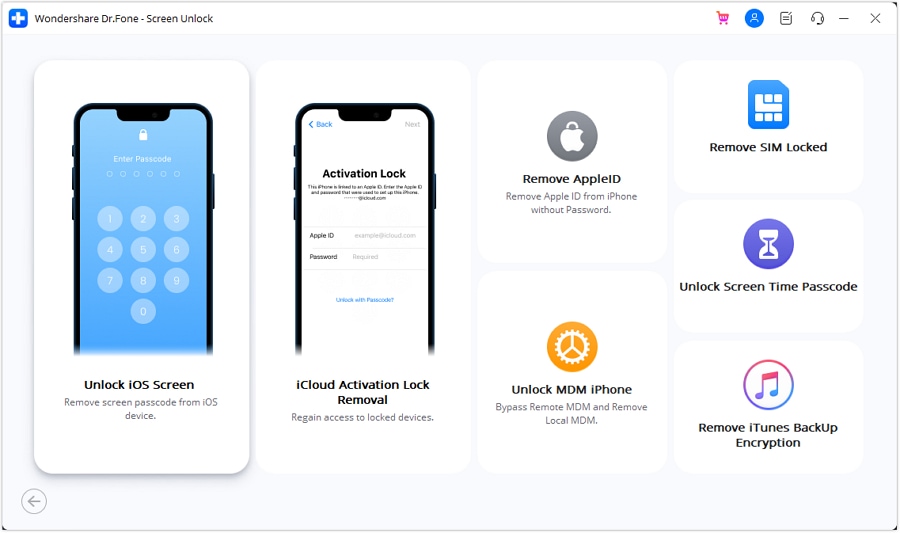
- Step 2: On the next screen, select Start to begin the unlocking procedure for the iOS device. Make sure that your device’s battery levels are enough.
- Step 3: After that, you should set your iDevice into Recovery Mode. Follow the on-screen instructions to put your iDevice into the appropriate mode for your model. If Recovery Mode does not work, click the Try DFU Mode button at the bottom to access the instructions for entering the iDevice into DFU mode.
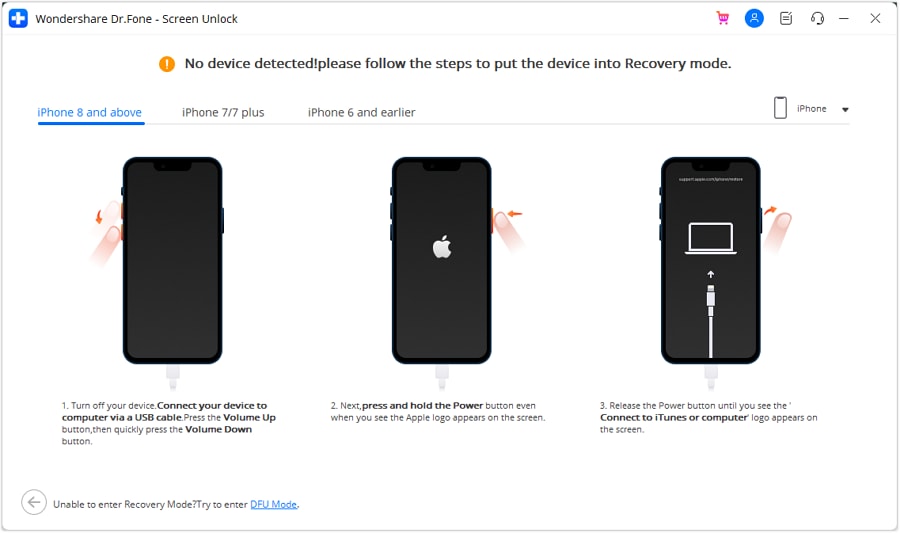
- Step 4: After the user successfully enters their iDevice into Recovery Mode, the platform automatically recognizes the Device Model and shows it in the appropriate section. Modify the model and select the System Version to meet your needs if necessary. After that, select Start to begin unlocking your device’s screen.
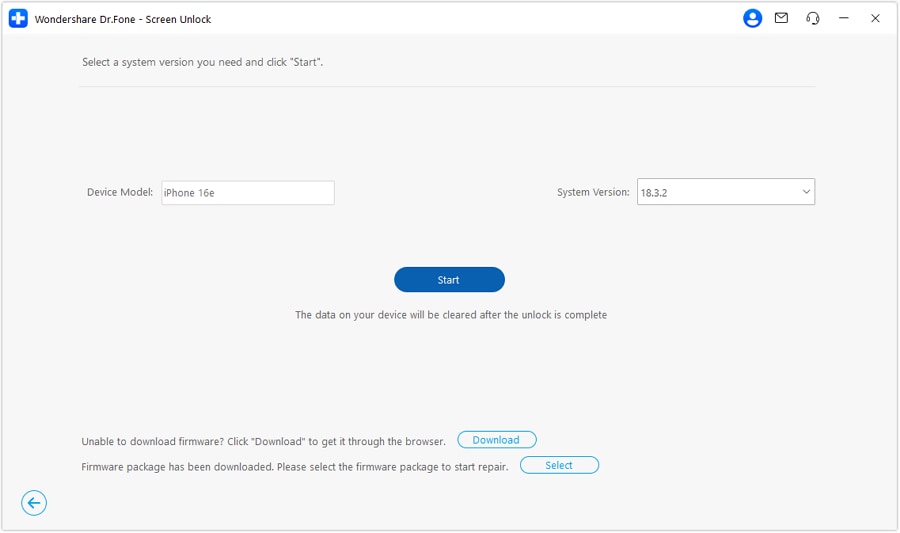
- Step 5: The following screen reveals the status of the iOS firmware download on the platform. If you want to stop the procedure, click the Stop button. In cases when the iOS firmware is downloading slowly on the platform, utilize the Copy button to copy the URL for manually downloading the iOS firmware.
- Step 6: After successfully downloading the iOS firmware, it is confirmed and displayed on the next screen. Continue by clicking the Unlock Now button to begin the unlocking procedure.
- Step 7: A prompt window displays on the screen, asking for procedure confirmation. Enter the indicated code and tap Unlock to proceed with the final result.
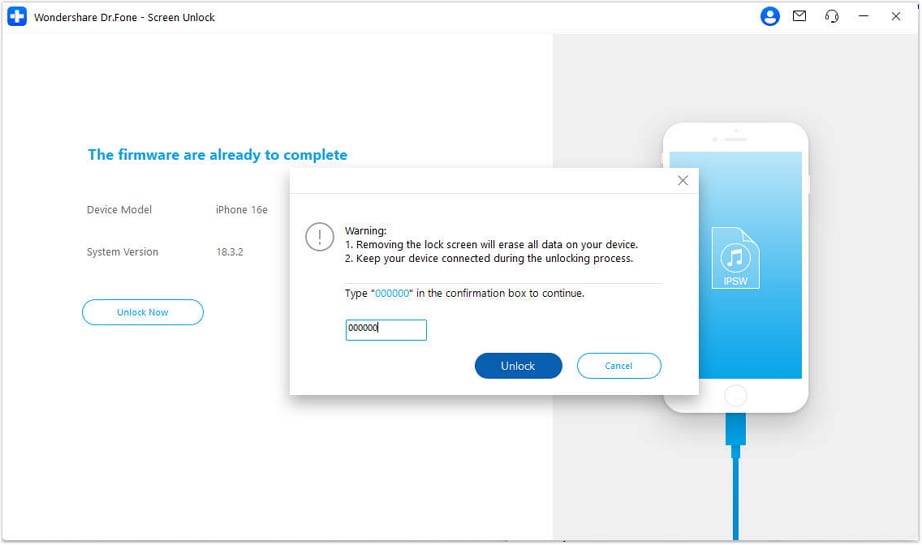
- Step 8: The next screen displays the unlocking iOS device’s progress bar. Keep in mind that the Xiaomi Redmi Note 13 5G device must be connected at all times; otherwise, it will brick.
- Step 9: Once the iDevice has been successfully unlocked, click the Done button to complete the process. If your iDevice is still locked, click Try Again to restart the process.
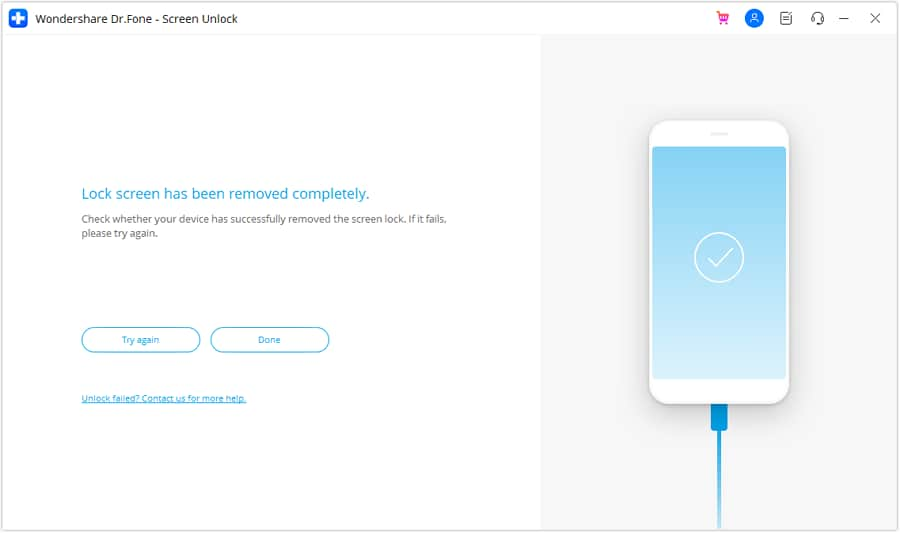
Conclusion
This article explored the incredible world of IMEI tracking, a powerful tool for locating lost or stolen phones. You’ve learned that your IMEI number is capable of helping you pinpoint your device’s location, but tracking IMEI numbers through Google Earth is impossible.
But that’s not all. This article also introduced and divulged an amazing and reliable tool for unlocking an iPhone. So, the next time you’re in a tight spot with a locked screen, remember that Dr.Fone - Screen Unlock (iOS) is the best software you should get your hands on.
Can I Bypass a Forgotten Phone Password Of Xiaomi Redmi Note 13 5G?
Screen locks on smartphones are crucial for keeping the data in your phone hidden. Password for phone becomes necessary when you have critical data on your phone. However, there is a downside to it.
Many people forget their screen lock, and that’s normal. That can happen if you accidentally type a new lock screen password incorrectly. Apart from that, there are many other explanations too. In short, you can get locked out of your device, which is a terrible experience. It can waste your time if you need something stored in your phone.
Here we have mentioned solutions to let you bypass your lock screen password. All the solutions mentioned here are safe and will work almost 100% of the time.
Part 1: How Can I Set or Change My password?
- Open the Settings application and tap the Security choice.
- Under Device Security, tap Screen Lock.
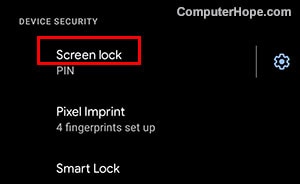
- Select a Screen lock option, i.e., Swipe, Example, PIN, Password, etc.
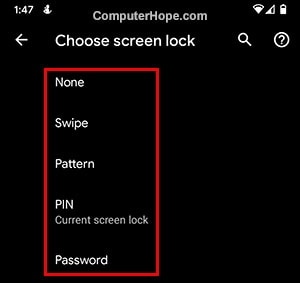
- When you pick your choice, follow the guidelines on the screen to set it. Enter your screen lock straightaway.
- Then redo your screen lock on the following screen, then, at that point, tap Confirm.
Part 2: 4 Simple Ways to Bypass Your Xiaomi Redmi Note 13 5G Phone Password
1. Google Find My Device
Our first approach to unlocking your device is to do a factory reset. That erases every one of the data on your phone too. You can perform this method if you have your Google account credentials and are ready. However, we want you to back up your data so you can sign once more after the reset and restore a ton of your data.
Since you’re locked out, you will have to utilize a technique to do the reset. The most straightforward way is to utilize Google’s Find My Device site. So, if the Find my Device option feature is enabled on your phone, you can tap the Erase device choice on this page to reset it.

2. Enter Recovery Mode to Hard Reset
If you can’t use the Find my device feature, you’ll have to factory reset physically. To do as such:
- Power your device off.
- Hold the Volume (-) and power keys all the while after the screen goes dark to raise Android’s bootloader menu. This button blend might be different relying on your device model.
- Press the Volume down button two times to feature the Recovery Mode choice. Then, at that point, press the power button to choose it.
- Hold the power button and press the Volume up button to enter this mode.
- Utilize the volume buttons to go to the Wipe data/Factory Reset choice. Continue with the steps to play out a factory reset.
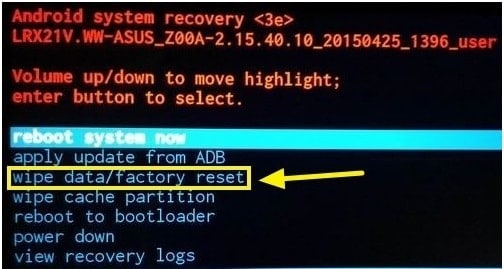
3. Use ADB
This fix isn’t guaranteed to work; if you don’t watch out, it could damage your phone. Therefore, we suggest you back up everything on your Android before proceeding.
If your phone has USB debugging enabled, is connected to a PC, and is not encrypted, follow these steps:
- Connect your device to your PC through a USB connector.
- Open Command Prompt or Terminal window to your ADB installation registry.
- Type in adb shell rm/data/system/gesture.key and click the Enter key.
- Reboot your phone. When you do, the solid lock screen ought to be gone.
- That is not a permanent condition, so reset your PIN or password lock before you reboot your device once more. That’s how you reset password for phone.
4.Dr.Fone-Screen Unlock
If you want to unlock your phone without losing any data, we suggest Dr.Fone-Screen Unlock. Dr.Fone is a professional unlocking tool that can remove all types of screen locks in minutes. Dr.Fone is an all-in-one solution for all your iOS and Android needs. So, if you need a quick solution for your phone, download it now.
Step 1. Connect your Android telephone
Open the tool on your PC and select the “Screen Unlock” tool.

When the entire process is finished, you can access your Android device without entering any PIN and view all your data on the Xiaomi Redmi Note 13 5G device.
Step 2. Select Unlock Android Screen tool
We provide 2 options for you, and to unlock screen, you should select “Unlock Android Screen”.

Step 3. Select device model
There are still 2 buttons to choose, “100% Remove Screen Lock” is for most Android brands, but please back your device up before you pick it.
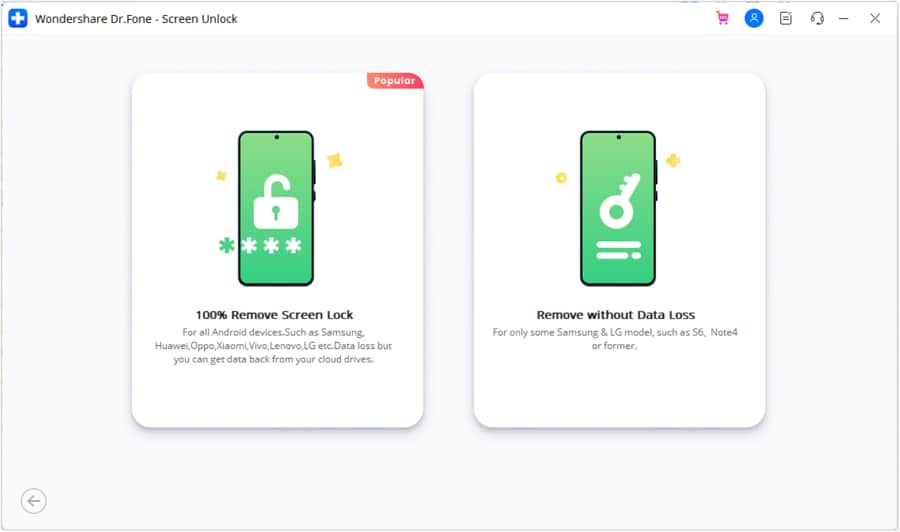
Check the brands list and make sure your unlock process keeps.

Step 4. Enter into Recovery Mode
Then follow the instructions on the program to get the Android phone into Recovery Mode. Here we take 3 different models of Samsung phones as example. (Note: Processes are different according to different brands).
Recovery Mode in Samsung Phone with Bixby
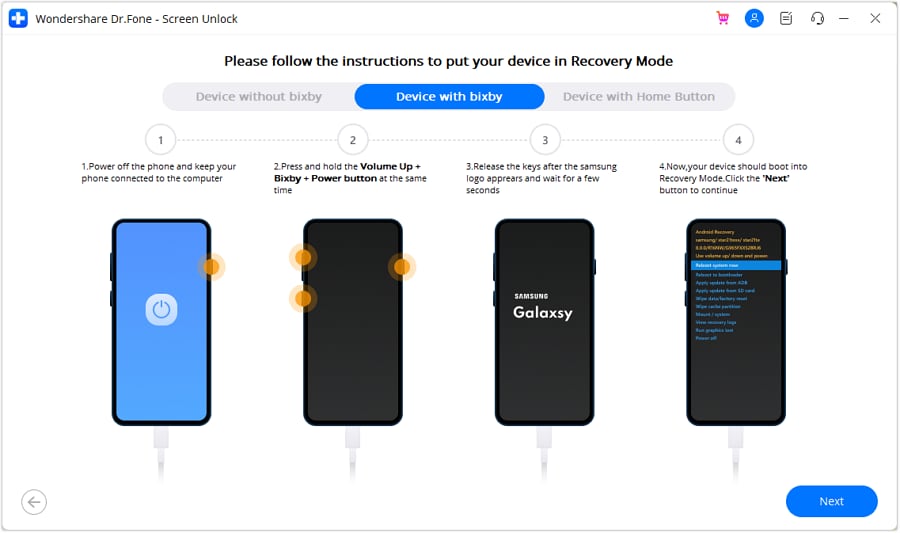
Recovery Mode in Samsung Phone without Bixby
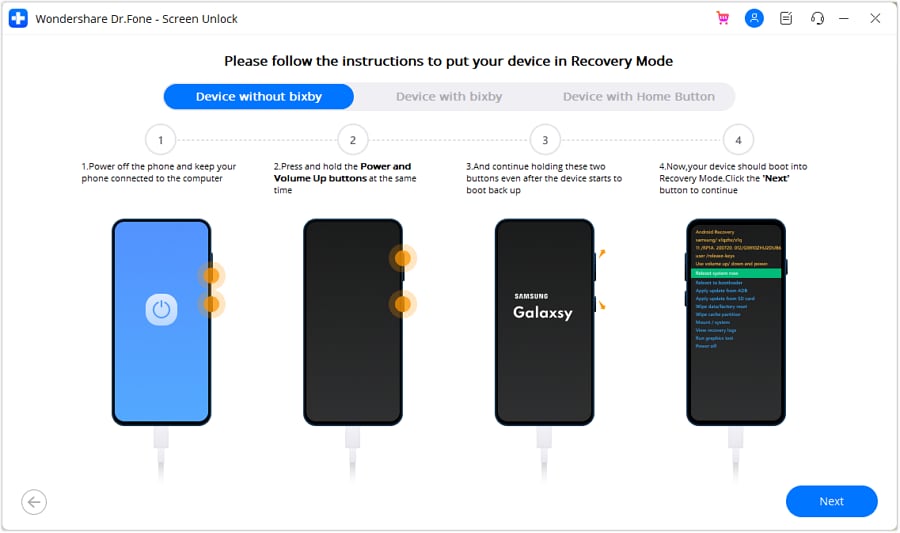
Recovery Mode in Samsung Phone with Home Button
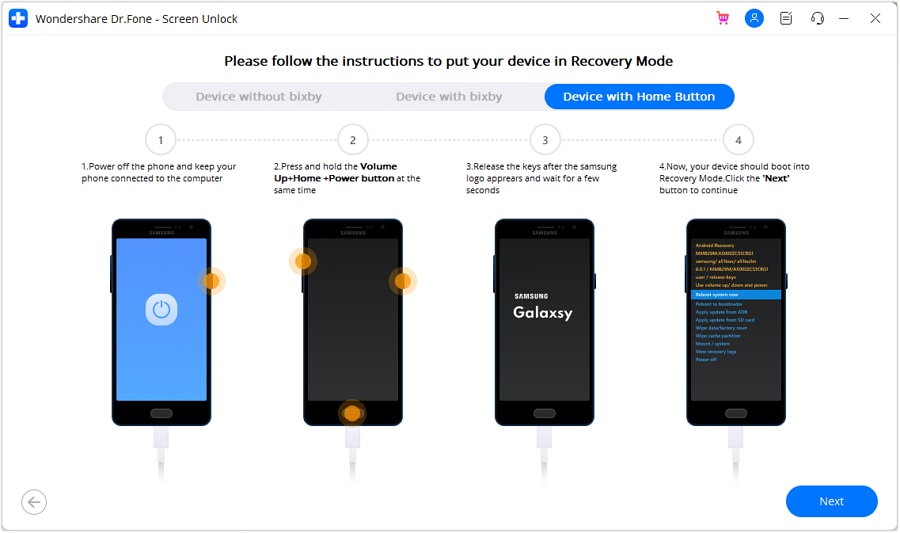
Step 5. Instructions to Erase Cache Partition
Steps in Recovery Mode are really important, find the correct options and your locked screen will be removed.
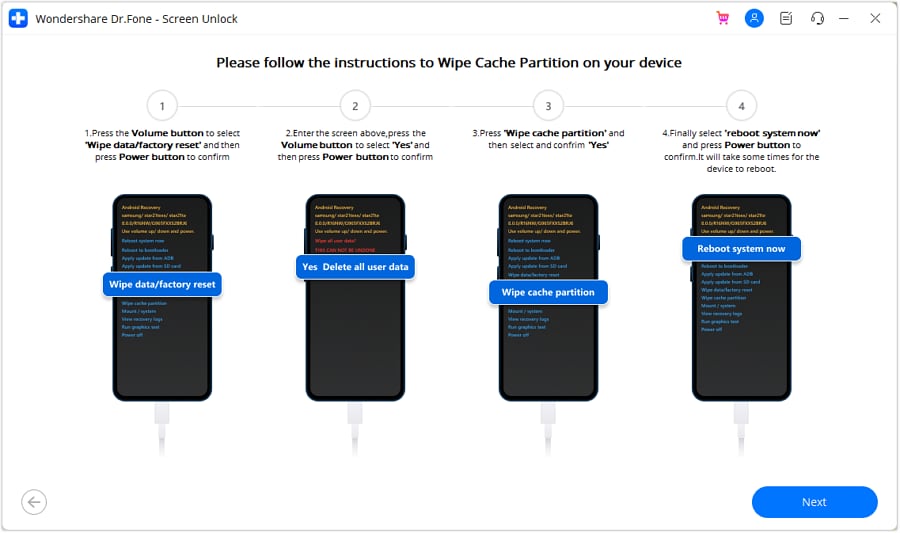
Now it’s a phone everyone can access without password or pattern.

Part 3: How to Back up My Xiaomi Redmi Note 13 5G Easily?
Dr.Fone-Phone Backup
As we all know, unlocking a lock screen password involves a hard reset, which can delete your user data. Therefore, you must back up your files before hard resetting.
There are several tools available to back up your files. You can use Google or your phone manufacturer’s cloud services to back up your file. However, none of them are secure enough. So, we suggest Dr.Fone-Phone Backup have a secure and reliable backup experience. Dr.Fone lets you choose the files you need and back them up. Moreover, you can restore those files to your phone once it gets unlocked.
The Bottom Line
Getting locked out of your phone can be frustrating, especially if you need an important file from it. However, there are solutions to get over this issue and unlock the password for phone. This article contains all you need to unlock your device and return it to be normal. Moreover, if you don’t want to lose your data, give Dr.Fone a try. It is currently the best unlocking and backup tool in the market.
- Title: In 2024, Still Using Pattern Locks with Xiaomi Redmi Note 13 5G? Tips, Tricks and Helpful Advice
- Author: Marry
- Created at : 2024-07-18 14:33:26
- Updated at : 2024-07-19 14:33:26
- Link: https://unlock-android.techidaily.com/in-2024-still-using-pattern-locks-with-xiaomi-redmi-note-13-5g-tips-tricks-and-helpful-advice-by-drfone-android/
- License: This work is licensed under CC BY-NC-SA 4.0.


